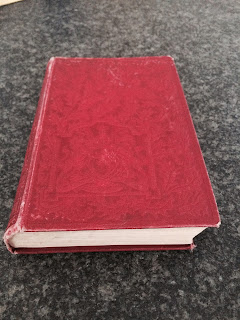This book
is purely about stories. It is not written in extraordinary language or fancy
sentences – just bare stories. (this might be due to the translation though).
Stories are also the currency within this book:
“The Sultan of Casgar fell into a passion against the Christian merchant. “Thou
art a presumptuous fellow,” said he, “to tell me a story so little worth
hearing and then to compare it to that of my jester. I will have you all four
impaled, to revenge his death.
Hearing this, the purveyor (one of the four)
prostrated himself at the sultan’s feet. “Sire,” said he, “I humble beseech
your majesty to suspend your wrath and hear my story; and if it appears to be
more extraordinary than that of your jester, to pardon us.” (Townsend, 1899,
p.576).
Interestingly, despite stories being of such
high value in this book, curiosity (and hence our desire to hear stories) is
also described as dangerous: “But we entreat you to forbear opening the golden
door; for if you do, we shall never see you again.” (Townsend, 1899, p.80).
The motor of a story only starts, when we try
to shape our own destiny and don’t accept that this is in God’s hand. “”I see,
Sir,” said I, addressing myself to Saadi, “that it has pleased God, whose ways
are secret and impenetrable, that I should not be enriched by your liberality,
but that I must remain poor; however, the obligation is the same as if it had
wrought the desired effect.” (Townsend, 1899, p.254). “I upbraided myself a
hundred times for not being content with the produce of my first voyage, that
might have sufficed me all my life. But all this was in vain, and my repentance
came too late. At last I resigned myself to the will of God.” (Townsend, 1899,
p.407).


